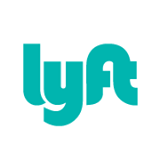One of these, in some form, is likely to become law.
Senate Bill 176, by state Sen. Charles Schwertner, R-Georgetown, and Senate Bill 361 by state Sen. Robert Nichols, R-Jacksonville, received a joint hearing after [Senate Business & Commerce Committee] chairman Kelly Hancock, R-North Richland Hills, noted their similarities. Both bills establish a statewide framework to regulate ride-hailing companies like Uber and Lyft and undo local rules that the two companies have argued are overly burdensome for their business models.
A majority of about 30 witnesses supported the bills at Tuesday’s hearing, including representatives with Uber and Lyft. Austin councilwoman Ellen Troxclair, who opposed the city’s ride-hailing rules last year, testified in favor of a state law that would override them. Troxclair said the departure of both ride-hailing companies hurt Austin businesses and led to a rise of a transportation black market.
“A Facebook group with over 40,000 members offers to connect people, anybody who wants a ride or anybody who’s willing to give one, regardless of an affiliation to a ride-sharing platform or a background check required,” she said.
Critics of the bills included the Texas Municipal League and Austin City Council member Ann Kitchen. Kitchen, the City Council member who introduced the rules establishing the Austin fingerprinting requirements that prompted Lyft and Uber to leave the city, defended the city’s fingerprinting requirement, and said that the city has fingerprinted 8,000 drivers. At the time the city adopted the rules, she said, the city’s police chief, Art Acevedo, told the council that fingerprinting increased security.
“Fingerprinting is the most effective means to make sure the person you are checking is the person who they say they are,” she said.
See here for some background. Both bills were left pending, but as noted I expect one of them to get a floor vote and to pass. There’s a very similar bill to these two in the House, authored by Rep. Chris Paddie. Any of them could wind up crossing the finish line, and I’ll be surprised if that doesn’t happen.
And on a somewhat tangential note:
Uber and Lyft ramped up their Texas lobby expenditures after Austin voters invited the ride-hailing giants to leave their hi-tech city in 2016 if they refused to comply with a local law requiring them to fingerprint their drivers.
With Texas lawmakers [Tuesday] considering several bills to block cities from regulating such ride companies,1 Uber has increased its state lobby spending 23 percent over last year. It now is spending up to $1.6 million on 26 lobbyists. Lyft meanwhile boosted its lobby spending 88 percent, to pay 14 lobbyists up to $760,000. Together, the two San Francisco-based
companies are spending up to $2.3 million to preempt the powers of local Texas governments.The two ride giants handed out a total of $40,500 in corporate contributions in 2016 to Texas’ two dominant political parties and to several legislative caucuses.
[Tuesday] the Senate Business and Commerce Committee also is hearing proposals to prevent local governments from curtailing the use of plastic grocery bags or to regulate short-term property rentals.
You can think whatever you want about these bills, but you can’t argue that they don’t come cheap. The Austin Chronicle has more.



Allll of the state reps and lobbyist and the governor are being denied uber access because of the city of Austin,you should already now which way this goes.
I would support this legislation as long as it applies to all commercial ride provision companies. There’s no reason taxi firms should be regulated any differently than Uber and the others. A state law requiring fingerprinting would be great.
As a native Texan and current part-time driver for Uber and Lyft and 3 other TNCs which require fingerprinting in central Texas with over 6000 total trips completed, I am against any state bill that eliminates fingerprint background checks for drivers.
Uber and Lyft are unethical companies. They could operate in Austin anytime they wanted to if they would comply with the Austin ordinance. None of the drivers I know objected to fingerprinting. Uber and Lyft treat their drivers poorly causing a high turnover requiring a quick on-boarding process for them to get new drivers activated.